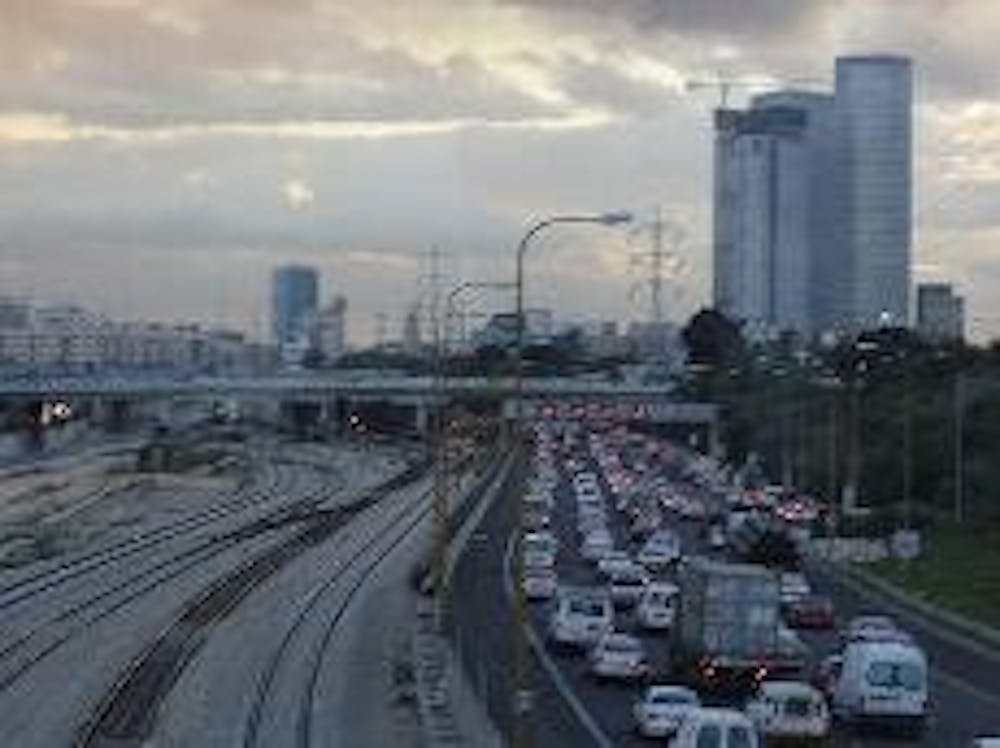This winter break, 13 AU students in the ATID Campus Fellowship traversed Israel on a mission. Their two-and-a-half week endeavor shed light on the historical and contemporary nature of Israel and complement their Jewish backgrounds.
The ATID Campus Fellowship, led by Rabbi Hirsh Chinn, has brought together groups of impassioned Jewish students for seven years. In Hebrew, "ATID" translates into "future." Organized for sophomore and junior applicants only, the yearlong program allows students to examine the traditions and values of Jewish life and to connect with them on a personal level.
The trip to Israel is only one part of the program, but it is perhaps the most essential in terms of cultural exploration. The mission allows ATID campus fellows from AU, George Washington University, Georgetown University and the University of Maryland to embark on activities together, many of which go beyond the typical tourist's itinerary.
Among their excursions was a mountain hike in the Negev, a desert region of southern Israel, on the second day of their mission.
"The hike was really significant for a lot of people because it was the first thing that brought us together as a group," Sienna Girgenti, a sophomore in the School of International Service, said. "Before the trip, we all had our own cliques since everyone was from different schools, but it was an activity that really got everyone together, talking and mingling."
Girgenti also said the hike had a more personal impact.
"There was a very powerful moment when I just kind of sat back down and said, 'This is Israel. This is the land of my ancestors,'" Girgenti said. "As cheesy as that sounds, it was such a privilege to have that kind of experience. It was one of those moments where you take a step back and reflect."
Beyond the desert, the students traveled to cities of religious and historical importance, including Jerusalem, the City of David, Tel-Aviv and Zefat. They visited sites such as The Kotel, or Western Wall, located in Jerusalem. The Kotel, where Jewish men and women gather to pray, is one of the most significant sites for Jewish people because it is the last remnant of Jerusalem's holy temple.
"Religiously speaking, going to the [Western] Wall was remarkable and breathtaking," Jason Lebowitz, a sophomore in the School of Public Affairs, said.
Students explored the political landscape of Israel with visits to its Independence Hall, Supreme Court and the Lebanese border. Guest speakers at these visits offered different perspectives on contemporary Israeli political issues. For example, they attended a security lecture at the Lebanese border to discuss the Israel-Lebanon conflict that occurred in the summer of 2006.
Toward the end of the trip, each student took part in a community service activity. One of the community service opportunities was mitzvah clowning, in which the students dressed up as clowns and entertained children at a children's hospital.
"It was the first time verbal communication didn't matter," Jason Rosenwach, a junior in SIS, said. "We didn't speak each other's languages, but it was just about having fun and playing with the kids."
Many of the students on the mission chose to participate in mitzvah clowning, according to Girgenti.
"It was awesome to be there for that one hour, just to see the children smile," Girgenti said. "It was a very humbling experience."
While it has been nearly one month since they came home, AU students who went on the trip remember it as an important chapter in their lives.
"The trip increased my awareness of Judaism in my life," Andrew Engel, a sophomore in SPA, said. "It's compelled me to return to Israel, and I plan to study abroad there next year."
For Lebowitz and other campus fellows, the mission was their first time in Israel.
"For me, the trip was very powerful," Lebowitz said. "At first, I was kind of apathetic because it was a long semester and I kind of wanted to go home and sleep. But as soon as we got on the plane, I started to get excited and ready to go. I got there and I was glad I didn't have to go sleep."
Overall, Lebowitz said the mission was a positive experience that allowed encouraged Jewish values.
"It was a good social environment for those who are active in the Jewish community and who want to learn more about their Jewish lifestyle," he said.





